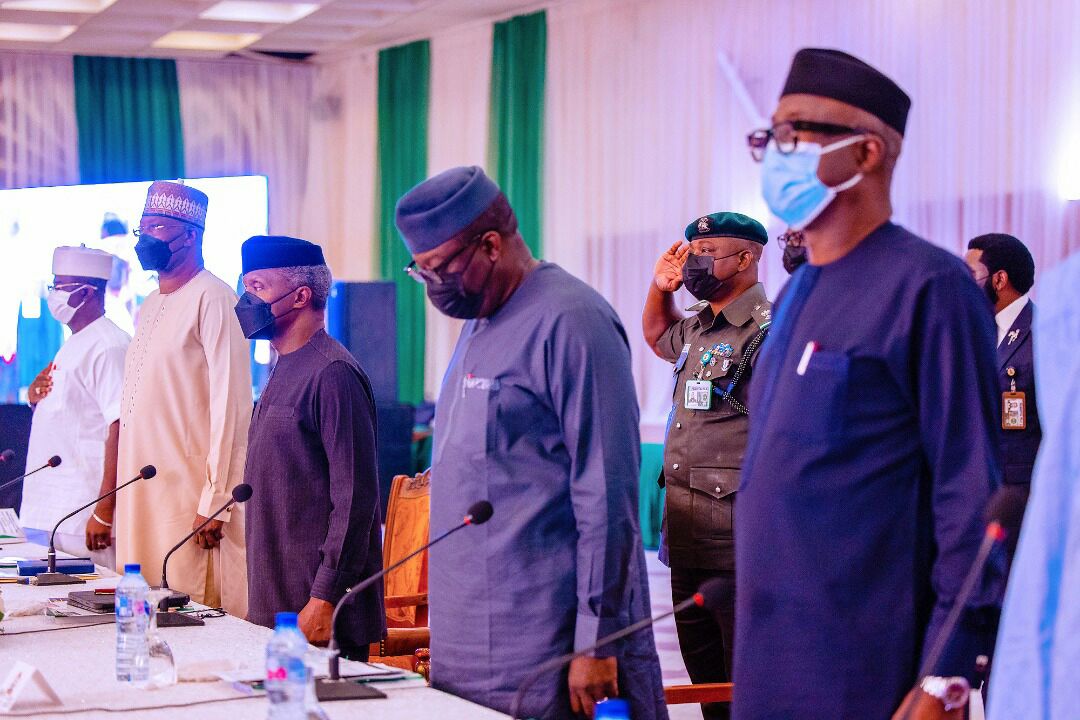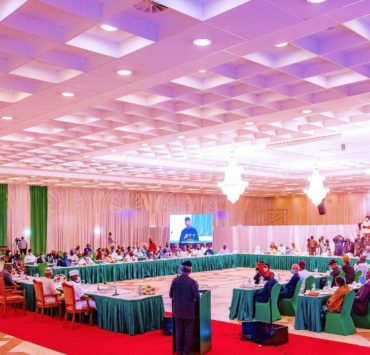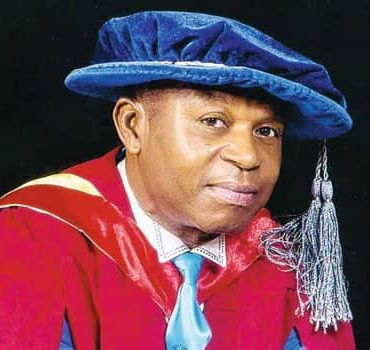First NEC Meeting Of The Year Focuses On Subnational Ease Of Doing Business, Demographic Transition, Others

Determined to consolidate the gains of the previous subnational surveys on Nigeria’s business climate, the National Economic Council (NEC) rose from its first meeting for the year, firmly supporting the second iteration of the Subnational Ease of Doing Business Report which is to be launched in the second quarter of 2022.
This was among other discussions during the 122nd physical meeting of the Council, chaired by Vice President Yemi Osinbajo, SAN. The meeting also had in attendance State Governors, the FCT Minister, Mallam Mohammed Bello and the Minister of State for Budget and National Planning, Prince Clem Agba, the Secretary to the Government of the Federation, Mr Boss Mustapha, and the Central Bank Governor, Mr. Godwin Emefiele, among others.
The Special Adviser to the President on Ease of Doing Business, Dr Jumoke Oduwole, who made a presentation to Council on the Subnational Doing Business Project and State Action on Business Enabling Reform (SABER) Programme noted that the second iteration of the Subnational Ease of Doing Business Report will deepen the scope of the reforms based on what private sector is saying about the business climate in Nigeria.
According to Oduwole, the initial criteria (framework) focused on security and infrastructure, transparency and access to information, the regulatory environment, and skills and workforce readiness.
She explained that the second edition will include economic opportunity, and level of digitization, just to deepen the scope based on private-sector ideas regarding improving the business climate in Nigeria.
Council also received an update presentation on the State Performance Report on Disease Outbreaks in Nigeria by the Director-General of the Nigerian Centre for Disease Control (NCDC), Dr Ifedayo Adetifa.
Council was informed that as of 19th January 2022, a total of 251,341 cases were tested while 23,939 active cases were recorded and 224,939 discharged.
There was also an update report on the outbreak of Lassa Fever with reported increasing number of cases from Bauchi, Oyo, with recorded fatalities in Nasarawa(2) and Benue(1) States in the last 7 weeks.
States were urged to improve enforcement of proper environmental sanitation; activation of Lassa Fever testing laboratories; sustain funding for Lassa Fever response; provision of local sample transportation framework, and equip treatment centres to manage complicated cases.
Other highlights of the 122nd NEC Meeting are as follows:
UPDATES:
A. THE HONORABLE MINISTER OF STATE FOR BUDGET AND NATIONAL PLANNING GAVE COUNCIL AN UPDATE ON THE UNDER LISTED ACCOUNTS AS FOLLOWS:
1. EXCESS CRUDE ACCOUNT (ECA)
BALANCE AS AT 17TH JANUARY, 2022 STANDS AT $35,868,086.40
2. STABILIZATION ACCOUNT
BALANCE AS OF 17TH JANUARY, 2022 STANDS AT N30, 685, 611, 413.79
3. DEVELOPMENT OF NATURAL RESOURCES ACCOUNT
BALANCE AS AT 17TH JANUARY, 2022 STANDS AT N42, 820,382,381.40
B. INVESTING IN ADOLESCENT GIRLS TO ACCELERATE THE DEMOGRAPHIC TRANSITION IN NIGERIA BY HON. NASIR ISA KWARRA CHAIRMAN, NATIONAL POPULATION COMMISSION
· Council was called to note that a “demographic dividend” can deliver massive economic growth, poverty reduction and human development. The demographic dividend arises when there is a favourable age structure with larger shares of workers and smaller shares of dependents.
· The Demographic Transition is where the necessary conditions to capture a demographic dividend are created. This is characterized by declines in child mortality and fertility.
· The more rapid the fertility decline, the sooner and the larger is the demographic dividend.
· We recognize the importance of investing in adolescent girls to accelerate Nigeria’s demographic transition
· Adolescents constitute population age 10 -19 years and by estimate, represent 23.4% of the total population of Nigeria.
· Meeting adolescent girls’ sexual and reproductive health and educational needs can fast-track Nigeria’s journey from being a pre-dividend to early dividend country.
· Addressing adolescent needs and empowering them can quicken the opening of the window of opportunity required to harness a demographic dividend.
However, there are constraints that need to be addressed urgently:
· High fertility among adolescents limits their productivity: currently, the fertility rate among adolescent girls is at 106 births per 1,000 girls aged 15-19;
• 43% of our girls marry before age 18; 8% get married before age 15;
• 19% of teenage girls have commenced childbearing
• 27% in rural versus 8% in urban areas;
• Adolescent girls contribute to the prevailing high maternal deaths in Nigeria
• Adolescent fertility and its consequences will worsen given the lower enrolment and school completion rates for girls than boys.
KEY ASKS TO STATE GOVERNORS
Keep Adolescent Girls in School through the following:
· Adopt and implement free and compulsory education for girls: at least a completion of Senior Secondary Education in all the 36 states and the FCT. E.g., Conditional Cash transfers to ensure girls stay in school.
· Safe Schools: Ensure availability of appropriate amenities and security in all schools across the country. E.g., Lavatories, security fence.
· Empowerment: Increased investment in empowering women and girls in and out of school; working with the community and religious leaders in addressing social norms.
· Expand access to essential primary healthcare services: including reproductive and family planning services.
· Addressing early/child marriage: through legislation and advocacy.
CONCLUSIONS
· Governors are passionate about the Girl-child/Adolescent investment
· World Bank pledges commitment to support in order to help Nigeria benefit from her demographic dividend.
C. REQUEST FOR NEC SUPPORT FOR THE OFFICIAL DEVELOPMENT ASSISTANCE [ODA] POLICY FOR NIGERIA BY THE HONOURABLE MINISTER OF STATE BUDGET AND NATIONAL PLANNING
The Minister made a presentation seeking the support of the National Economic Council [NEC] on the Official Development Assistance [ODA] Policy for Nigeria.
· The ODA policy will serve as a guide for Nigeria’s Official Development Assistance [ODA] relationship, regulate and coordinate the flow of aid as well as provide an operational framework for delivery and receiving international development assistance by Ministries, Departments and Agencies at both National and Sub-National levels
· The policy will address the following:
[i] Issues of poor aid coordination [ii] Ineffective management of aid programmes and resources [iii] Data availability and reliability [iv] Poor linkages and lack of harmonization amongst Development Partners [v] Guide creation of platforms to measure the impact of aid on Nigeria’s development aspirations [vi] Ensure mutual accountability and transparency amongst partners.Council then noted:
· That Official Development Assistance [ODA] Policy for Nigeria is designed to guide the utilization of bilateral, multilateral and non-governmental grants into the country, and is also to help facilitate partnerships through other platforms of International Cooperation such as North-South, South-South and Triangular Cooperation across all sectors of Nigeria economy.
RESOLUTION
· Governors’ Forum to take a closer look at the policy document and make sufficient input.
Lawyard is a legal media and services platform that provides enlightenment and access to legal services to members of the public (individuals and businesses) while also availing lawyers of needed information on new trends and resources in various areas of legal practice.













